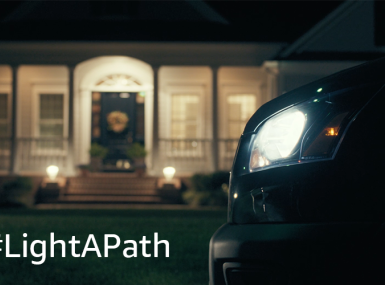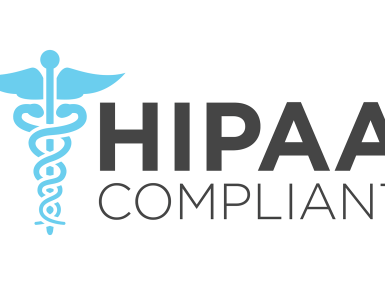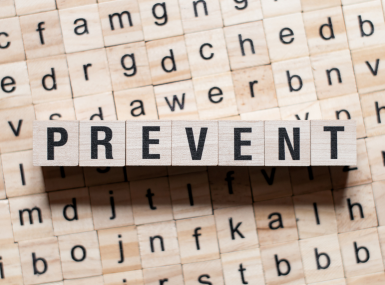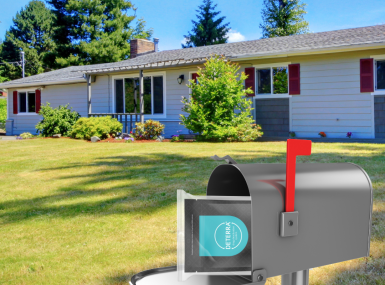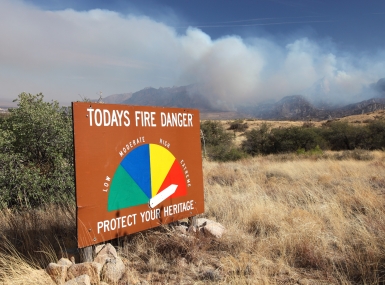Where to find funding to help make every day Take Back Day
Upcoming Events
Related News

Drug take-back sites and collection events like National Prescription Drug Take Back Day are key prevention tools for local governments, law enforcement agencies and coalitions nationwide. They play a crucial role in raising awareness about the importance of proper disposal of unused medications to prevent drugs from being misused, stolen or accidentally ingested. Unfortunately, not everyone has easy access to drop sites and unused medications can pile up between take-back events.
At-home drug deactivation and disposal resources like the Deterra® Drug Deactivation and Disposal System are an excellent complement to take-back efforts and help encourage the prompt disposal of unwanted medications as soon as they are no longer needed. In Ohio, the Clark County Sheriff’s Office (CCSO) distributes Deterra Pouches at community events throughout the year to ensure that individuals who can’t make it to take-back sites have a convenient, effective means of disposal.
We first learned about this at-home drug disposal option through a donation of 1,200 Deterra Pouches. After using that initial donation, CCSO started exploring funding options to continue to provide this prevention tool. The sheriff’s office secured a national Comprehensive Opioid Stimulant and Substance Abuse Program (COSSAP) grant through the Bureau of Justice Assistance (BJA) to purchase an additional 4,200 pouches.
Several funding options are available for coalitions, counties and law enforcement entities to add Deterra to existing prevention programs or create a standalone drug deactivation and disposal campaign.
Funding sources for at-home drug deactivation and disposal resources
Deterra is an eligible expense for many grant opportunities. Below are funding sources that organizations have used successfully and that could be good options for you. Additional funding is released throughout the year, so it’s a good idea to be on the lookout for funding announcements. You can also visit Deterra’s funding directory and join its email list to stay updated on relevant opportunities.
Funding Source: American Rescue Plan Fiscal Recovery Funds
Overview: The American Rescue Plan will deliver $350 billion for eligible state, local, territorial and tribal governments to respond to the Covid-19 emergency. Funds can address systemic public health and economic challenges that have contributed to the unequal impact of the pandemic. This includes:
- Areas that have been negatively impacted by COVID-19 which include drug overdoses.
- Mental health treatment, substance misuse treatment, other behavioral health services, hotlines or warmlines, crisis intervention, overdose prevention.
Funding Source: State Opioid Response (SOR) Grants
Overview: The Substance Abuse and Mental Health Services Administration (SAMHSA) is requesting $2.3 billion in fiscal year 2022 for the SAMHSA State Opioid Response Grants, an increase of $750 million over the 2021 enacted level. These grants are awarded to provide states, tribes, and U.S. territories with flexibility to address the specific substance use related issues in an area.
- Counties, coalitions and nonprofits are eligible to receive these funds.
Funding Source: COSSAP Grant
Overview: For 2022, the Office of Justice Programs (OJP) requests $631.9 million to support a range of programs including the Comprehensive Opioid, Stimulant, and Substance Abuse Program; Drug Courts; Veterans Treatment Courts; programs for youth; and the Residential Substance Abuse Treatment Program. OJP grants provide flexibility to state, local, and tribal jurisdictions to address substance use under all its drug-related programs depending on local needs.
- Counties and law enforcement agencies are eligible to receive COSSAP dollars.
Funding Source: Rural Communities Opioid Response Program (RCORP) Grants
Overview: RCORP is a multi-year initiative that addresses barriers to treatment for substance use disorder (SUD), including opioid use disorder (OUD). This program is open to all domestic public or private, non-profit or for-profit entities, including federally recognized tribes as well as faith-based and community-based groups.
- Nonprofits, coalitions, local and tribal governments are eligible for funds.
Funding opportunities are ever-changing, so application criteria, deadlines and requirements are frequently updated. Check with your state and local authorities about available grants in your jurisdiction, and visit grants.gov to learn more about federal options that may impact your county.
Making safe drug disposal part of a comprehensive prevention program
Preventing opioid abuse and overdoses starts with eliminating opportunities for misuse. Drug take back events and at-home drug deactivation resources are critical tools for communities to combat drug abuse. In fact, lawmakers in New York’s Rensselaer and Albany Counties recently announced a new law mandating that pharmacies provide drug deactivation and disposal like Deterra alongside every opioid prescription.
County officials, coalitions and public safety departments have the power to make proven prevention solutions like Deterra available to citizens year-round. To learn more about making at-home drug deactivation part of your efforts, download the Deterra Grant Guide to get practical guidance on securing funds for evidence-based tools like Deterra as well as links to additional potential funding sources.
Post Sponsor

Related News

CMS issues new guidance on Medicaid Community Engagement Requirements
On December 8, the Centers for Medicare & Medicaid Services (CMS) released a Medicaid and CHIP Services Informational Bulletin (CIB) directing states on how to implement the Medicaid community engagement requirements enacted under Section 71119 of the One Big Beautiful Bill Act legislation (Public Law 119-21), or H.R. 1.
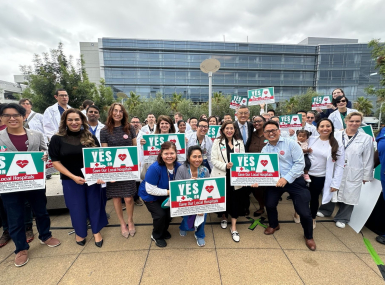
California county sales tax measure backfills federal healthcare cuts
Santa Clara County, Calif. will raise an estimated $330 million each year from a sales tax to backfill lose Medicaid funding.







